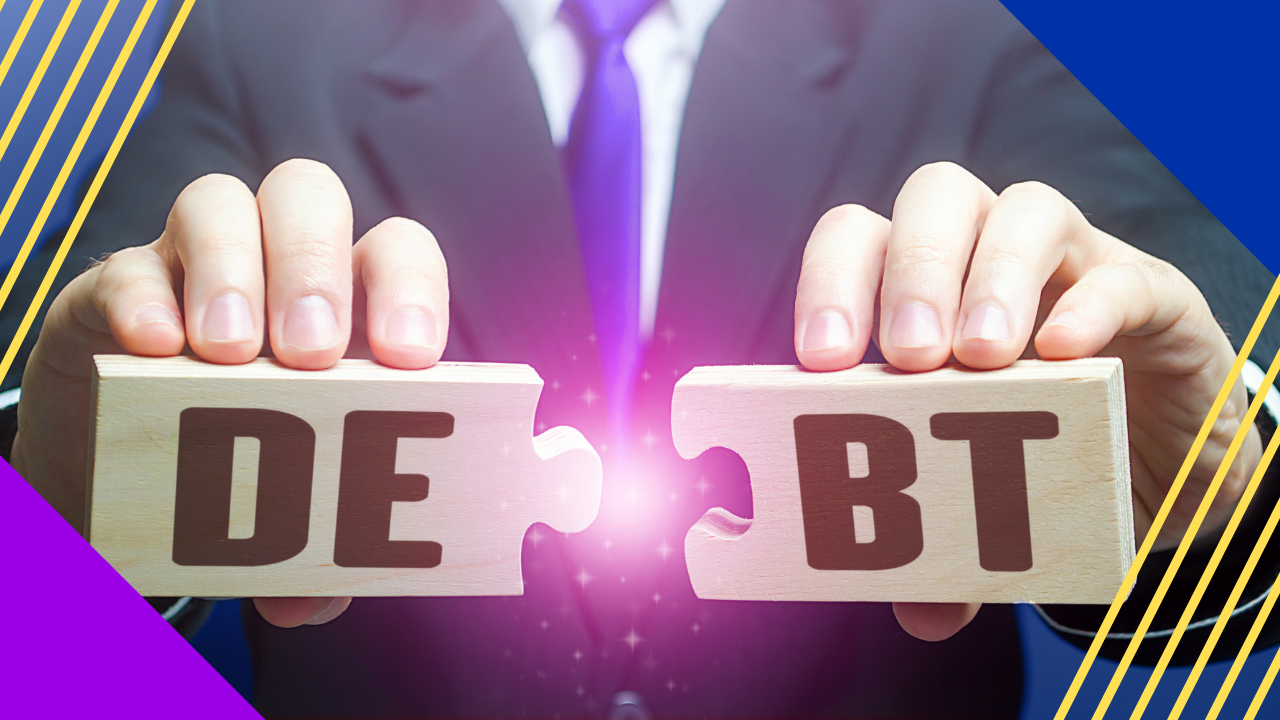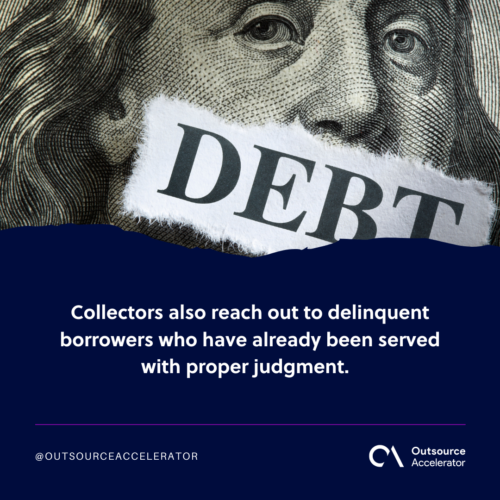Here’s why you should outsource your debt collection

Dealing with debt recovery processes can be exhausting, time-consuming, and, if inefficient, can also be expensive.
For your debt collection to be effective, you will need a dedicated team with the right skills and expertise. You also have to invest in reliable systems and software for your overall process.
For these reasons, businesses are choosing to outsource their debt collection, as they can fully take advantage of their provider’s staff and resources.
Outsourcing this critical part of your business is a huge decision. To help with your resolution, we’ll give you five perks of outsourcing your debt collection process and where you can acquire the service.
What is involved in a debt collection process?
Debt collection refers to the process of procuring overdue debts from certain borrowers.
Unpaid debts can be in different forms like:
- Personal loan debt
- Car loan debt
- Credit card debt
- Utility bills
- Phone bills
- Student loan debt
- Medical debt
Debt collectors specialize in collecting debts and serve as middlemen between creditors and debtors. They contact borrowers through written notices, phone calls, emails, or text messages to negotiate payment terms.
Collectors also reach out to delinquent borrowers who have already been served with proper judgment.
While other creditors have their own in-house collection team, most companies opt to farm out debt recovery to a debt buyer. Some debt collection agencies only deal with specific types of debt, such as credit card debt or unpaid bills.
On the other hand, other outsourcing firms, like Cloudstaff, also provide debt collection services for various industry sectors.

5 powerful perks of outsourcing debt collection
Outsourcing your debt collection process gives your business the following advantages:
1. Lower delinquency rates
Acquiring a third-party debt collection agency allows you to acquire debt collection agents who are well-equipped with training and experience. Although outsourced, they will function as your full-time staff.
Firms like Cloudstaff are always up-to-date with the latest best practices concerning fund collections.
You are also guaranteed that your dedicated Cloudstaff team has the knowledge to handle difficult situations with delinquent borrowers. This, in turn, helps reduce your delinquency rate.
2. Lesser collection costs
Debt recovery can be a long and tedious process. Hiring in-house collectors will also require you to spend on intensive training, office space, and other needed resources for the job.
Meanwhile, debt collection outsourcing firms will be in charge of recruitment, hiring, training, and employee management. They make use of the latest tools and software to augment their services.
3. Saves collection time
As we have mentioned, outsourcing debt collection gives you access to highly qualified collectors. Your outsourced staff will devote their time and focus to all debt recovery efforts, which usually results in a shorter collection cycle.
4. Boosts productivity and revenue
Outsourcing your debt collection processes gives your in-house employees more room to perform other important job functions.
In addition, they get more time to focus on reaching your business goals. The saved time can also be used to plan how to generate more revenue through upselling or cross-selling.

5. Increases collection rate
And lastly, having a reputable outsourcing provider ensures that you will be working with debt collectors who know exactly what they are doing. They understand your business requirements.
Having an efficient team automatically leads to an enhanced collection rate.
Fair debt collection practices to watch out
Debt collection practices refer to the methods and procedures employed by creditors or collection agencies to recover outstanding debts from individuals or businesses who have failed to make timely payments.
Here are some key aspects of responsible debt collection practices:
Compliance with laws and regulations
A debt collector must adhere to federal law and state laws governing debt collection, such as the Fair Debt Collection Practices Act (FDCPA) in the United States.
These laws outline permissible actions, prohibited practices, and guidelines for communication with debtors.
Fair treatment of debtors
Your debt collector should treat debtors with respect and fairness at all times. This includes avoiding harassment, threats, or abusive language and refraining from disclosing debt-related information to third parties without authorization.
Clear communication
A proficient debt collector should communicate clearly and accurately with debtors about the:
- Nature of the debt
- Amount owed
- Available repayment options
Collection agencies must provide written validation of the debt upon request and ensure that all communication is truthful and not misleading.
Verification of debts
Upon request from the debtor, a debt collector must provide verification of the debt, including details of the original creditor, the amount owed, and any relevant documentation.
Verification helps ensure that the debt is valid and accurately reflects the debtor’s obligations.
Respect for consumer rights
Your debt collector must respect the rights of debtors as outlined in relevant consumer protection laws.
This includes the right to dispute the debt, request validation, and seek assistance from consumer advocacy organizations or legal counsel.
Reasonable collection practices
Debt collectors should employ reasonable and proportionate measures to collect debts, taking into account the financial circumstances and capabilities of the debtor.
This may involve negotiating payment plans, offering settlements, or providing hardship assistance when appropriate.







 Independent
Independent




